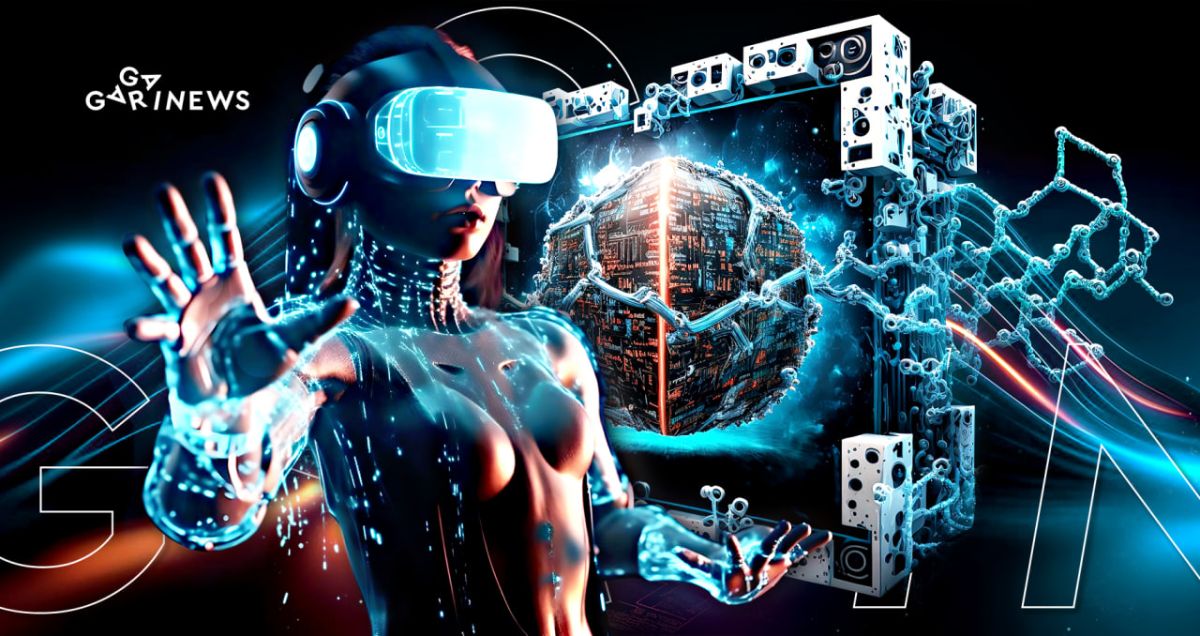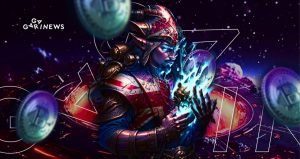How are blockchain and crypto transforming the gaming industry?

The introduction of blockchain technology and cryptocurrencies is bringing about significant changes not just in the financial sector, but also in the realm of video games. We are now seeing the emergence of new categories and genres, such as NFT, Metaverse, P2E, among others, that were previously non-existent.
On this page
Cryptocurrencies have ushered in new methods of payment in video games, allowing for transactions devoid of banks or traditional currencies. It is intriguing to see that while gamers spend time immersed in virtual worlds, the game's own cryptocurrency could significantly appreciate in value on the market – a phenomenon known as a “double win”. Thus, gamers can delight in the gameplay while their digital wallet concurrently expands.
The advent of blockchain technology, coupled with a new breed of digital assets – Non-Fungible Tokens (NFTs) – have given rise to novel projects and platforms. These platforms empower gamers to craft, purchase, sell, hold auctions, or exchange unique items of all kinds. These could range from in-game commodities such as weapons, augmented armors, upgrades, skins, land, and real estate, to avatars and their cosmetic accouterments. Despite initial skepticism, these gaming elements have proven to hold substantial value and demand.
The emergence of such projects has opened up a new frontier for video game developers, allowing them to tap into a market of hundreds of millions of users and establish prosperous businesses. On the flip side, gamers are no longer just whiling away their time on yet another game; they now have a tangible opportunity to earn substantially.
Blockchain games: Types, forms, genres, and classes
Blockchain technologies have not only expanded the boundaries of the video game industry but also given birth to new genres and classes of gaming projects. GameFi, Play-to-Earn (P2E), Move-to-Earn (M2E), NFT, Metaverse, crypto game dApps – these represent the cutting-edge gaming segments in the crypto industry, created atop the foundation of blockchain and digital assets.
NFT and Metaverse gaming projects are spearheading the P2E segment in the video game industry powered by cryptocurrencies. The concept of NFTs infuses diverse gameplays, including even traditional card and board games where players possess and trade unique collectible items. Role-playing game projects (RPGs) have also gained popularity as they afford players the chance to earn cryptocurrency by fulfilling a variety of tasks throughout the game. These games often incorporate various NFT objects, stimulating players to acquire and utilize the most distinctive or advanced items for quicker mission completion and level advancement.
Decentralized gaming applications, or game dApps, represent a growing trend in blockchain-based gaming. These games are typically anchored to a specific blockchain platform and utilize its assets, often implementing game mechanics through the use of smart contracts. dApps projects range from single, simple games to expansive gaming universes. In these larger ecosystems, players can earn digital assets across multiple game projects. It's not uncommon for these ecosystems to consist of dozens, if not hundreds, of dApps and games where the same non-fungible token (NFT) items, collections, or avatars can be used. This type of environment has been dubbed the Multiverse.
In the Multiverse, gamers can utilize their NFT assets—items, objects, or other in-game valuables—across various games. Not only can players use these assets, but they also fully own them, with the ability to sell, trade, or rent them. This concept introduces a new way for players to profit significantly from the gaming assets they own and led to the emergence of a new gaming genre – Rent-to-Earn (R2E). In R2E games, players can boost their earnings significantly by using unique and high-level rented assets, returning a portion of their earnings to the asset's owner as a rental fee.
Transformative effects of crypto and blockchain in the gaming sector
Apart from spawning new gaming genres, blockchain technologies have significantly influenced the gaming industry by changing the paradigm of game development and distribution. Numerous public blockchain platforms offer the tools to create decentralized gaming applications. This means games can be developed and distributed independently, bypassing traditional distributors such as Steam, Playstation, or Xbox, thus eliminating centralized control. This allows any player with a digital wallet to access any blockchain game at any time, even without owning a gaming console or high-end gaming PC.
Furthermore, blockchain games enable players to legitimately own a variety of virtual assets and cryptocurrencies. This approach broadens the horizons for in-game economics and streamlines transactions. It has given rise to new categories of blockchain games that offer more than just entertainment to players.
Currently, the Metaverse concept, especially in conjunction with VR technology, along with GameFi, are attracting significant investments. The emergence of new game projects in the near future holds the potential to incite another revolution in the gaming industry.
It's not just exciting to observe these developments, but to participate in them, experiencing first-hand how cryptocurrencies and blockchain technologies are shaping the future of gaming. These advancements are accelerating the gaming industry's acceptance of digital assets on a broader scale.
The content on The Coinomist is for informational purposes only and should not be interpreted as financial advice. While we strive to provide accurate and up-to-date information, we do not guarantee the accuracy, completeness, or reliability of any content. Neither we accept liability for any errors or omissions in the information provided or for any financial losses incurred as a result of relying on this information. Actions based on this content are at your own risk. Always do your own research and consult a professional. See our Terms, Privacy Policy, and Disclaimers for more details.


























